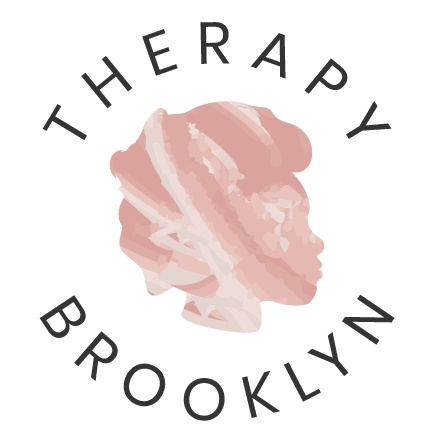Therapy Brooklyn Specialties
Cognitive Behavioral Therapy
Cognitive Behavioral Therapy (CBT) is an effective research based form of treatment addressing a range of disorders and symptoms including depression, anxiety and stress. It seeks to understand the connection between our thoughts, emotions and behaviors. How we perceive a situation influences how we feel and in turn impacts our behavior. Sessions focus on identifying specific thoughts and beliefs, labeling your feelings and exploring the reasons for your actions. Homework is given at each session to help strengthen new behaviors and gain insight.
Mindfulness
Positive psychology focuses on positive emotions and strengths and is based on the belief that people desire fulfilling lives in which they are their best self. It uses techniques such as mindfulness, meditation, daily gratitude and strength finding to cultivate confidence and resilience to face life stressors. These techniques are incorporated into each session whether individually, as a couple or family.
Ackerman Relational Approach
The Ackerman Relational Approach is a way of working with families and couples. It is used to identify problematic cycles of interaction that cause issues in communication. This breakdown in communication often causes distance, distrust, anger, anxiety and a lack of clarity in relationships. This approach seeks to understand and change this cycle of interaction through exploring how families impact our ways or relating, our beliefs about ourselves and others and our behaviors. For more information visit: www.ackerman.org.
Depression
Depression often feels like a heavy weight that is difficult to carry. It is common to feel a lack of motivation, stuck and uncertain when depressed. Experiencing multiple stressors at once can make these feelings seem more difficult to manage. Having the support of a therapist can help you identify problems that create this weight and how to go about systematically addressing them. Research has shown that action focused therapy such cognitive behavioral therapy (CBT) is an effective depression treatment.
Racial Identity
As a biracial, multicultural clinician of color Marissa Moore is attuned to race, racism and oppression. Marissa understand’s issues that clients bring to therapy through a social justice lens. For example, she supports interracial couples in navigating and understanding how cultural differences, intersectionality and power and privilege impact their dynamic. She also supports biracial and multiracial clients in exploring their racial identity development.
EMDR
EMDR (Eye Movement Desensitization and Reprocessing) is a psychotherapy that enables people to heal from the symptoms and emotional distress that are the result of disturbing life experiences. It is an eight phase treatment used to target traumatic experiences and the negative beliefs and sense of self associated with those experiences. Marissa Moore completed level 1 and 2 training and is working towards certification in EMDR.
Behavioral Issues/Acting Out
We have extensive experience offering therapy to children and teens who exhibit behavioral problems at home and at school. Such issues include difficulty paying attention, listening, and controlling anger. We enjoy the process of helping children and teens find healthier ways to express themselves and regulate their emotions through the use of talk, play and art therapy. Children tend to have difficulty expressing themselves and the use of creative techniques in therapy is a great way for them to learn how to identify, label and communicate how they are feeling.
Relational Cultural Therapy and Feminist Therapy
The therapist and client can form an authentic, healthy, and egalitarian relationship. This relationship can then be a model for clients to develop deeper, more meaningful connections to others in the client’s life.
Internal Family Systems (IFS)
Individuals are seen as having several different parts, both protective and vulnerable. Through this framework, she creates a space where clients can explore these different parts of themselves: to understand each part’s function and where they came from, these parts’ relationships to one another, and to work with them to achieve inner harmony in the client’s life.
Acceptance & Commitment Therapy (ACT)
A framework whereby clients recognize their inherent agency in their life. Control over one’s emotions is so often sought after and is rarely recognized as some of the roots of anxiety, depression, and other mental health issues. The primary objective of this form of therapy is to help clients find their agency in changing their relationship to their thoughts and feelings.
Maternal Health
Maternal health addresses the health of women during pregnancy, childbirth, and the postpartum period. This encompasses family planning, preconception, prenatal, and postnatal care in order to ensure a positive and fulfilling experience, in most cases, and reduce maternal morbidity and mortality in other cases.
Maternal Mental Health
Maternal Mental health (MMH) is focused on addressing the mental health of mothers. MMH is the state of psychological well- being in which a mother can actualize her own abilities, cope with everyday stressors, can work and engage fruitfully and is able to connect with her community.
